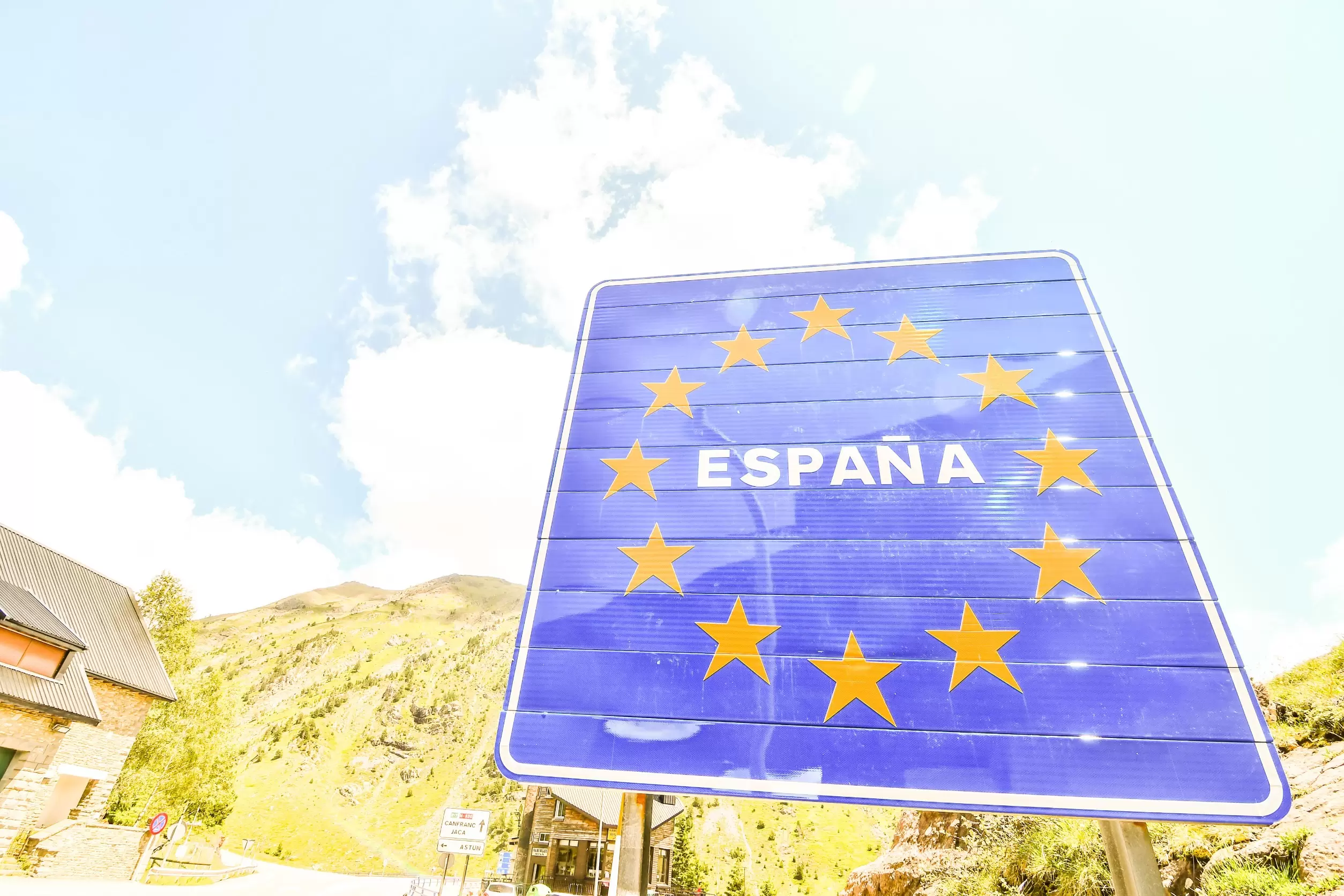

1. How to get Spanish Citizenship
As a Spanish lawyer with many years of experience in immigration matters, I’ll guide you through the process of Spanish citizenship —a privilege that comes with many benefits but also its challenges. Being Spanish citizen is not only about getting Spanish passport; it’s about fully embracing life, culture and responsibilities of being part of this wonderful country.
For foreigners living in Spain, the journey to Spanish citizenship can be seen as a way to overcome many obstacles. The Spanish passport is one of the strongest in the world, allowing visa-free or visa on arrival to many countries. Spanish nationality gives you the right to vote and be elected to public office, unrestricted access to the job market and a clear sense of belonging to Spanish society.
But the journey to get Spanish citizenship is full of complexities, requirements and legalities that need to be carefully navigated. From showing sufficient financial stability to passing strict language and cultural knowledge tests, the process is designed to make sure applicants are well prepared to integrate into Spanish society.
In this article we will go through the process of becoming Spanish national, the legal requirements and procedural obligations and how to avoid common pitfalls. Our goal is to provide a complete guide to turn the tedious task of getting Spanish nationality into an achievable goal.
Whether you have been living in Spain for 10 years or just started thinking about it, understanding the path to get Spanish nationality is key. Indeed this could be your first step to get Spanish citizenship.
One of the biggest obstacles that non-EU citizens want to overcome is of course the 90-day rule.
Want to hear what other clients
are saying about us?
2. 90-Day Rule in Spain
The 90-day rule is the regulation that governs the stay of non-European Union (EU) nationals in Spain and indeed the wider Schengen Area: the 90-Day Rule.This rule allows a non-EU national to stay in the Schengen Area, which includes Spanish territory, for up to 90 days within any 180-day period for tourism, business meetings or any non-profit activity. To exercise this right a non-EU national must have a valid passport. The countdown of these 90 days starts from the first day of entry into any Schengen country, not just Spain.
The 90-Day Rule affects non-EU nationals planning to stay in Spain or any other Schengen country for longer periods without a residency permit. Overstaying this limit can result in penalties such as deportation, fines or ban on re-entry into the Schengen Area.
Note that this rule does not apply to EU nationals. Citizens of any EU country can stay in Spain or move freely within the Schengen Area for an unlimited period with only their valid passport or national ID card without needing a Spanish residency permit.
If you want to be resident in Spain and not work, a non-lucrative visa in Spain would be a better option.

3. Overview of Spanish Citizenship (Spanish Nationality)
As stated Spanish citizenship comes with many benefits, from unrestricted access to the EU job market to the right to vote in Spanish elections. But beyond these privileges, being Spanish citizen means embracing the Spanish culture, mastering the Spanish language and accepting a new identity as a Spanish national.
There are several ways to get Spanish citizenship. The most common is through Spanish residency, where non-Spanish nationals who have legally resided in Spain for ten years can apply for citizenship. However this period is shortened for refugees and nationals from Ibero-American countries, among others, to just two years.
Spanish nationality can be acquired through parentage, birth in Spain, and Sephardic origin. The process usually involves a fee and may require a residence permit or permanent residence status. Being Spanish citizen creates a legal bond between the individual and the state, conferring both rights and duties.
Another common way is through marriage. Non-Spanish nationals married to Spanish citizens can apply for Spanish citizenship after just one year of legal residency in Spain. Citizenship can also be obtained through descent or birth in Spanish territory under certain conditions, even if the parents are non-Spanish nationals.Also Spanish citizenship can be obtained through the principle of 'right of blood' Spanish citizenship by descent, where individuals with a Spanish parent, regardless of where they are born, or those whose parents were born in Spain and are or were originally Spanish nationals can apply for Spanish citizenship.
4. Spanish Dual Citizenship
Dual citizenship is a complex issue. Spain does not generally permit dual citizenship but exceptions are made for nationals of Ibero-American countries, Andorra, the Philippines, Equatorial Guinea and Portugal.
Brexit has had a big impact on British expatriates seeking Spanish citizenship. While Spain does not allow dual citizenship for non-Ibero-American countries, the situation is complex for British citizens due to ongoing negotiations and potential changes in immigration law.
So British and other non-EU citizens would usually be required to renounce their original nationality to become Spanish citizens (though in effect their country of original citizenship may permit dual citizenship and therefore the effects may be negligible). Britain does not prevent citizens from having dual citizenship so worth bearing in mind for those thinking of moving to Spain from the UK.
The application process for Spanish citizenship involves submitting a comprehensive application to the Spanish Ministry of Justice, including documentation to prove eligibility, successful completion of a Spanish language test and a test on Spanish culture and society, except for those who can prove their schooling was conducted in Spanish.
Finally, it's worth noting that becoming Spanish citizen could have tax implications. Spain taxes its residents on their worldwide income, which could mean an increased tax liability for new Spanish citizens.
Becoming a Spanish citizen can be a long and complex process but with the right guidance and perseverance it can be a rewarding journey culminating in a new identity, new rights and a new home with new work and business opportunities.
So what are the requirements and steps for each mode of citizenship application?
5. Spanish Citizenship By Marriage
This route to get Spanish citizenship was known as 'matrimonio' and was changed a long time ago. The new rules allow the foreign citizen to get Spanish citizenship in as little as one year (as opposed to 10 years - see 'Arraigo' below).To qualify the foreign spouse and Spanish citizen must register the marriage in the civil registry office and the couple must have resided legally in Spain for at least one year. So the foreign citizen spouse will first need to get residency (normally via the Family Reunification Visa -tarjeta comunitaria). This will give the foreign citizen spouse a 5-year residence permit, during which time the citizenship application can take place.
Once the couple have lived in Spain for one year the process begins by submitting the required documents, which include a valid passport, birth certificate, certificate of marriage or civil partnership and proof of legal residency to the civil registry office. As proof is required of having lived together as a married couple it will be necessary to include the certificate of 'empadronamiento' issued by the local town hall.
An integral part of this process to get Spanish nationality is to demonstrate a basic proficiency in the Spanish language and a rudimentary understanding of Spanish culture, both evaluated through standard tests. Getting all the necessary documents and dealing with bureaucratic complexities can be tough but with proper guidance it's manageable.
The total cost can vary but expect to budget around €100 to €200 for the application fee and language test. Processing times can take between 12 to 24 months, largely depending on the workload of the Spanish Ministry of Justice.
6. Spanish Citizenship By Residence
Non-EU citizens wanting to get Spanish citizenship by residence must legally live in Spain for ten years, though the period reduces to two years for refugees or nationals from a Latin American country, Andorra, Philippines, Equatorial Guinea, Portugal or Sephardic Jews as regulated by Article 22 of the Civil Code.
This process is also known as nationality by residence or naturalization. Applicants must provide extensive documentation and may benefit from legal assistance to navigate the complex procedures. Upon approval successful applicants will receive a naturalization letter (carta de naturaleza) confirming their new status.
The application process involves demonstrating integration into Spanish society, passing a cultural knowledge test and a Spanish language proficiency test.
The applicant must also have a clean criminal record, both in Spain and any previous countries of residence, including any Spanish American country/Latin American countries.
The Spanish government charges a fee of €102 for citizenship applications. The process can be tough due to its complexity, the requirement of many documents and possible language barriers.Once submitted it can take up to two years or more to get Spanish citizenship. It's recommended to hire a lawyer to help you get citizenship efficiently.
7. Spanish Citizenship By Descent
Spanish Citizenship by Descent is granted to individuals who have Spanish parents or at least one Spanish parent or who were born in Spain to foreign parents if at least one of them was also born in Spain (excluding children of diplomats and consuls accredited in Spain).
It's important to distinguish between Spanish nationality by origin and other ways of getting citizenship. Spanish nationality by origin is granted to those born to Spanish parents or born in Spain to foreign parents under certain conditions. This status must be registered with the Spanish Civil Registry to be officially recognized.
Even if you were not born in Spain you can get citizenship if your Spanish mother or Spanish father was originally Spanish and you declare your wish to be Spanish within two years of turning 18.
The process involves submitting an application accompanied by a birth certificate, the parents' birth certificates or proof of Spanish ancestry like a Spanish grandparent's birth certificate.
The process can be complex, requiring accurate translations and possible genealogical research. The Spanish government's application fee is relatively low but expect additional costs for translations or legal assistance. The process usually takes around 12 months but times can vary.

8. Downside of Getting Spanish Citizenship
While getting Spanish citizenship can open up many opportunities for non-EU citizens there are potential drawbacks. One big concern is taxation.
As a Spanish citizen you would be considered a tax resident and subject to worldwide income reporting under the Spanish Personal Income Tax Law (Ley del IRPF). This means you would have to declare your global income and potentially pay taxes in Spain even if you've already paid taxes on that income in another country, although tax treaties may mitigate double taxation.
Moreover under Spain's wealth tax (Impuesto sobre el Patrimonio) residents might have to pay tax on worldwide assets exceeding €700,000. These additional tax obligations can have a big impact on your finances.
Spain doesn't always permit dual citizenship with non-Iberoamerican countries so you might have to renounce your original citizenship. You need to weigh these factors before applying for Spanish citizenship.
On the other hand the process can be particularly tough for refugees who may face unique challenges in getting the necessary documents or meeting residency requirements. However Spain does offer a shorter residency period for refugees seeking naturalization, recognizing their special circumstances.
9. Spanish Citizenship or permanent residency?
Non-EU citizens planning to live long-term in Spain have two main options: residency or citizenship.
So, non-EU citizens who have been living in Spain for 10 years after getting a Spanish non-lucrative visa, or a Digital Nomad Visa, have the choice to continue living in Spain with residency (assuming they continue to meet the visa requirements) or apply for Spanish citizenship.
Residency allows you to live and work in Spain indefinitely while keeping your original nationality. It requires 5 continuous, legal years of residence in Spain. Benefits include access to employment, public services and social benefits. But it doesn’t give you a Spanish passport or the right to vote in national elections.
Citizenship, on the other hand, gives you a Spanish passport, the right to vote and the freedom to live, work and study in the EU. But it generally requires 10 years of continuous, legal residence and Spanish language and culture knowledge and Spain doesn’t always allow dual citizenship, so you might have to renounce your original nationality.
The choice between these two options depends on your personal circumstances, long-term plans and ties with your home country.
10. How To Get a Spanish Passport
Getting your Spanish passport involves several steps. Firstly, of course, you must have Spanish citizenship, under one of the processes above. Once you have Spanish citizenship you can apply for a Spanish passport.
The application must be submitted in person at a provincial office of the Police (Comisaría General de Policía), at passport offices or at Spanish consulates if you are abroad. You will need to present a completed application form (Modelo 790), two recent photographs, your Spanish ID card (DNI) and the previous passport if this is a renewal.
Fees are around €30, payable at the time of application, though rates may vary slightly. The Spanish passport is issued within 2-4 weeks after application.
Please remember, the laws and procedures to get a Spanish passport can change, so always check the latest regulations or consult with a lawyer.

11. About the Spanish citizenship test: DELE A2 and CCSE
The Spanish citizenship test consists of two parts: the DELE A2 and the CCSE. These exams are mandatory for those who want to get Spanish citizenship as they prove a certain level of Spanish language proficiency and knowledge of Spanish society.
The DELE A2 exam is a language proficiency test that assesses the candidate’s ability to understand and express themselves in Spanish at A2 level, as defined by the Common European Framework of Reference for Languages (CEFR). This level corresponds to basic users of the language who can communicate in everyday situations with common expressions and phrases. The exam consists of different sections: reading comprehension, written expression and interaction, listening comprehension and oral expression and interaction.
The CCSE test, which stands for “Conocimientos Constitucionales y Socioculturales de España” (Constitutional and Sociocultural Knowledge of Spain), evaluates the candidate’s knowledge of Spain’s constitution and its social and cultural reality. The test consists of 25 multiple-choice questions, covering topics such as geography, culture, history and Spain’s political and administrative structure.
Both exams are administered by the Instituto Cervantes and can be taken at authorized examination centers in Spain and many other countries around the world. The exams are usually scheduled several times a year so candidates can choose a date that suits them best.
The application process for both exams involves registering online through the official Instituto Cervantes website. Candidates will need to provide personal information, choose an examination center and date and pay the corresponding fees.

In summary, the DELE A2 and CCSE exams are part of the Spanish citizenship application process. They ensure that candidates have a basic understanding of the Spanish language and a good knowledge of the country’s culture, society and constitution. So anyone who wants to become a Spanish citizen must prepare well for these exams and pass them.









